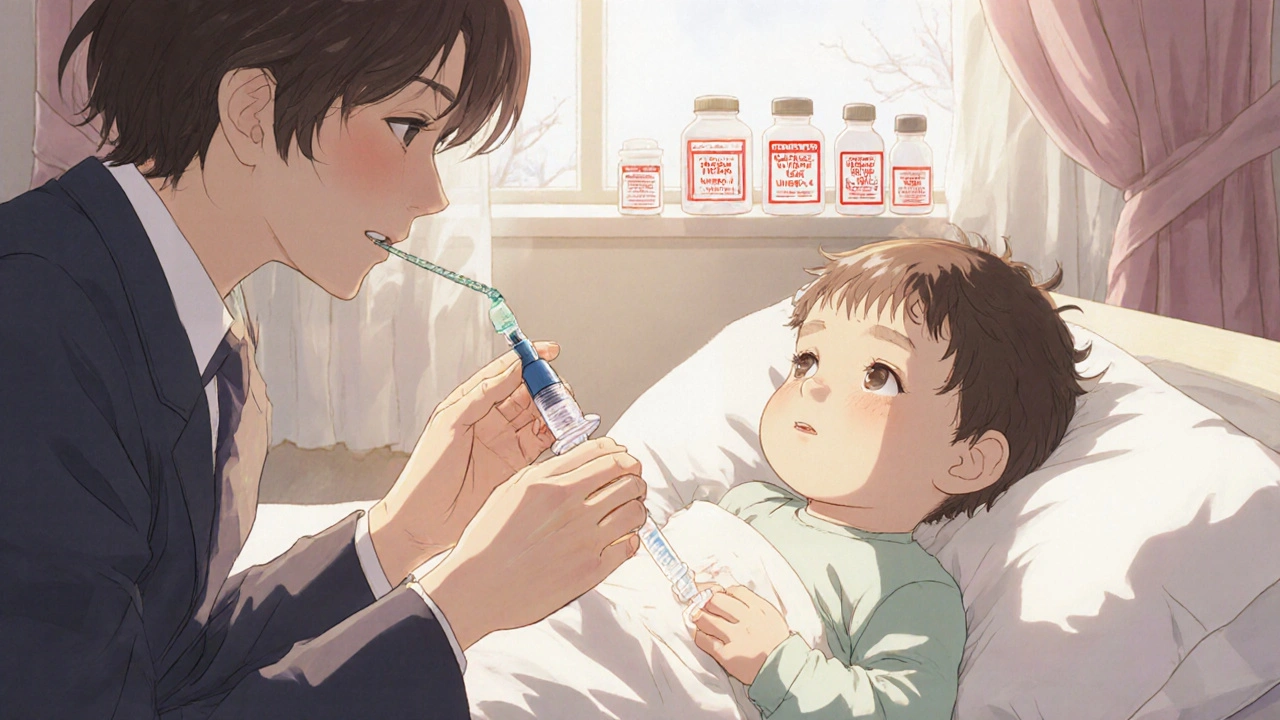OTC Cold Medicine for Children: Safe Choices and What to Avoid
When your child has a cold, you want relief—fast. But OTC cold medicine for children, over-the-counter remedies marketed for kids’ cold symptoms. Also known as pediatric cold remedies, these products are often sold as harmless solutions—but many contain ingredients that offer little benefit and carry real risks. The FDA doesn’t recommend them for kids under six, and many pediatricians agree: these medicines don’t cure colds, and they can cause serious side effects like rapid heart rate, drowsiness, or even seizures in young bodies.
What you’re really looking for isn’t a magic pill—it’s safe symptom relief, practical ways to ease cough, runny nose, and congestion without drugs. Things like saline drops, a humidifier, honey (for kids over one), and plenty of fluids work better than most syrups. And while children's cold remedies, formulations labeled for toddlers and preschoolers. often claim to target specific symptoms, they usually mix multiple active ingredients you don’t need. Dextromethorphan? It doesn’t stop coughs in kids. Pseudoephedrine? It can raise blood pressure. Antihistamines like diphenhydramine? They cause drowsiness, not faster recovery.
The real danger isn’t just ineffectiveness—it’s accidental overdose. Many parents don’t realize that a cough syrup and a fever reducer might both contain acetaminophen. Giving both can lead to liver damage. Or they’ll give two different cold products thinking they’re helping more, not knowing they’re doubling down on the same risky chemical. This isn’t speculation—it’s why emergency rooms see kids with drug reactions after well-meaning parents reach for the medicine cabinet.
So what should you do? Skip the multi-symptom bottles. Focus on comfort. Use a bulb syringe for a stuffy nose. Run a cool-mist humidifier at night. Offer ice chips or warm broth if they’re old enough. If fever’s bothering them, use a single-ingredient acetaminophen or ibuprofen—only if needed, and only at the right weight-based dose. And if symptoms last more than a few days, or your child is breathing hard, refusing fluids, or acting unusually tired, call your doctor. That’s when you need real care, not another bottle of syrup.
Below, you’ll find real, practical posts that break down exactly which OTC cold medicines for children are risky, which ones might be okay in rare cases, and what alternatives actually work. No fluff. No marketing. Just what you need to know to keep your child safe while they recover.
OTC Cold Medicine Safety in Children: Age Limits and Risks
OTC cold medicines pose serious risks to young children with little to no benefit. Learn the age limits, dangers, and safe alternatives backed by the FDA and pediatric experts.
learn more